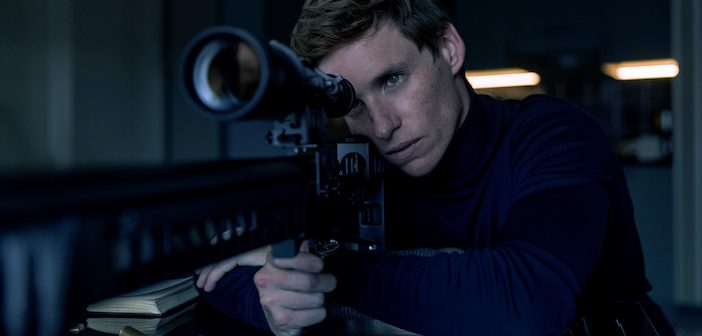The Arb’s screen critic, former TV director and photographer, Paul Joyce, takes aim at the latest reimagining of a classic, and weighs up its pedigree as a drama…
Let’s get one thing clear from the start: this Day of the Jackal is not the Day of the Jackal, not even by a (to use a marksman’s terminology) long shot. What we have here is an over-extended, bowdlerised, nonsensically plotted and over-acted piece of highly watchable TV drama, which led me to muse on the way that a great deal of TV today is heading: into an endless soup of plots within plots, subplots within plots, plots within subplots…you get my drift.
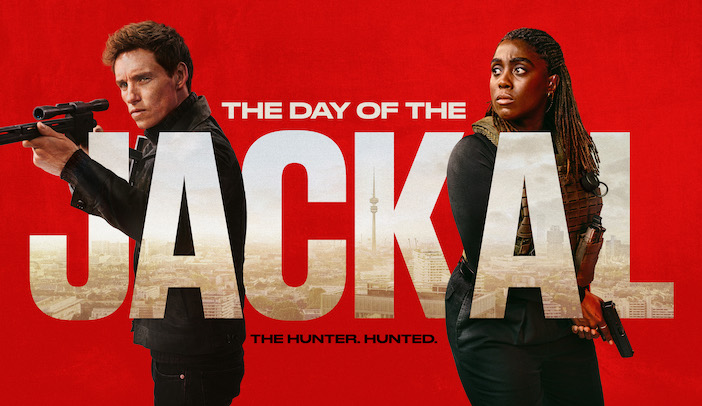
What we are now contemplating are series going far beyond the early markers of a dozen episodes. These days it is common to have six series comprising a dozen episodes each. Rather like the youth who will never in his lifetime be able legitimately to purchase cigarettes in the UK, our future viewer will never be able to watch all episodes of TV produced in his lifetime, even if they watch at twelve times speed. Camera crews are frequently spotted all over the world’s capitals, but soon I fear even small towns and villages will have their own stand-by technicians ready and willing to capture the latest armed robbery, car chase or murder. I am surprised that no-one has come up with the idea of criminals pretending to be filmmakers (Peter Sellers’ After the Fox notwithstanding), not enacting robberies but actually initiating them.
Note, I did call the new Jackal ‘highly watchable’. I found myself following the first five episodes in two sessions, which I guess qualifies me as a ‘binge’ viewer. It is oddly compelling. But being conscious of the time involved in absorbing all 10 episodes led me to speculate backwards to the time I saw the original Jackal from a comfy seat in The Odeon, Penge, with a packet of 10 Weights cigarettes in my school jacket and an empty ashtray attached to the back of the seat in front of me. Pure heaven! And so was the film.
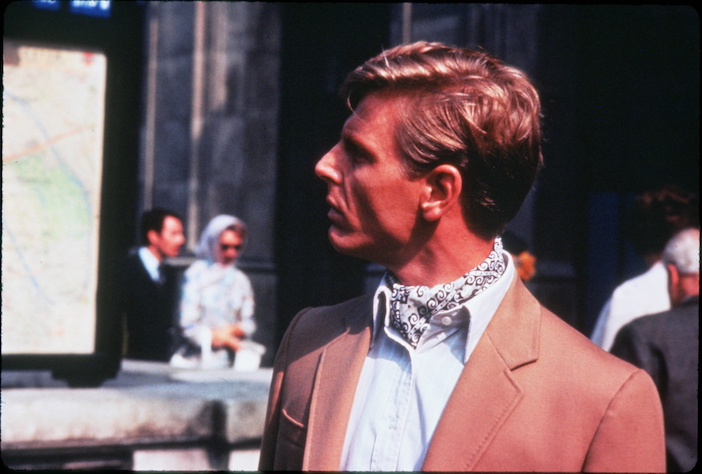
Edward Fox as the Jackal
So, here are my reasons why – and why indeed the new version fails at the starting gate. It is, simply, because the original stuck close to the origins of classical theatre: unity of action; unity of time and unity of place. Clearly not dogmatically, but within the spirit of these three fundamental yardsticks. Fred Zinnemann’s film version of the equally page-turning novel held as closely as possible to those three tenets, and it was the unity of action which made the film stand out as a most exceptional thriller, for there was only ever one target (President de Gaulle) and everything was focused on the moment that the Jackal and he would appear in the same frame.
But in the new version there are multiple targets which in turn have to support ludicrous sub-plots – such as a prime minister’s son paying the Jackal (or rather not paying) to assassinate his own father. It serves as an engaging introduction, but is it necessary? Then there’s the classic rule concerning time specifies a strict 24-hour period for the drama to be concluded. With a fixed time scale this, as far as I am concerned, qualifies Zinnemann’s film on that count. We are, perhaps, forced to leave the classic virtues at that of location, which specifies that the drama take place within a single place (easier for a play, of course) but, even here, the film’s climax did indeed happen at a specified location which was referred to again and again throughout the preceding action.
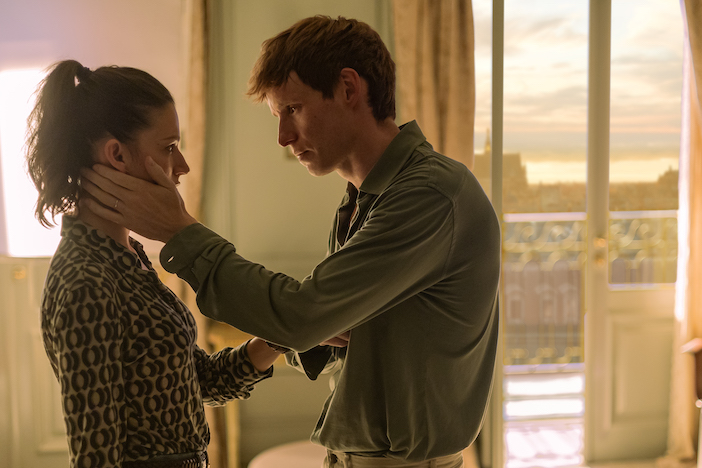
Eddie Redmayne as The Jackal & Úrsula Coberó as Nuria
This new version pitches Eddie Redmayne as a total chameleon and, quite unlike Edward Fox, has the baggage of a wife and baby son, a Mediterranean villa full of family and hangers-on to support. Now we are forced to see the Jackal either as a good family man who has gone astray somewhere, or a total schizophrenic, neither of which even brushes close to a believable truth. It also gives Redmayne the impossible task of trying to humanise a cold-blooded killer, with endless shots of him in contemplative mood, staring off camera, but without the ability to convey his inner turmoil or abject surrender to darker forces. Who could manage this, really? Mark Rylance, perhaps. Brando, certainly. (I’m open to suggestions, dear reader). Redmayne is a fine actor but this is stretching both him – and plausibility – a couple of steps too far.
We also have to contend with a subplot involving an MI6 operative (Lashana Lynch) – standing in for Michael Lonsdale’s Sûreté detective – who also has a family, that is supposed to know nothing about the nature of her work. What particular planet are these people supposed to live on? (“Did you have a good day at the office, dear?” “Yes, I shot a couple of people after lunch…”). I think one of the problems of watching hour after hour of stylistic brilliance, and this the series certainly does have in spades, is that one is battered into a kind of viewer numbness. Inconsistences are trampled underfoot as more and more inconsequential detail is piled on, layer upon layer.
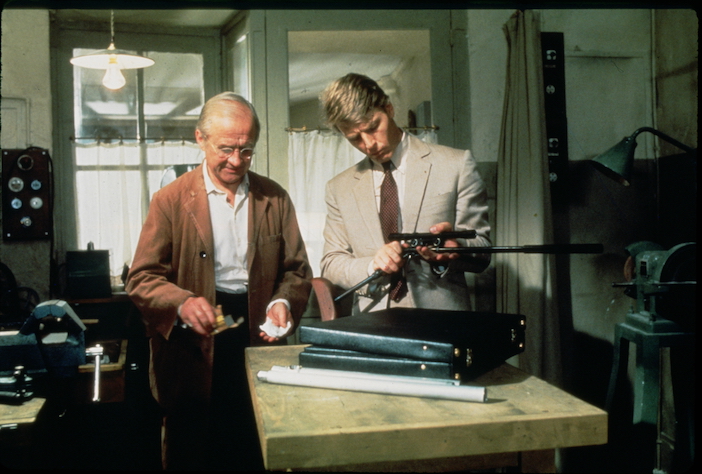
Cyril Cusack and Edward Fox in The Day of the Jackal (1973)
Some reviewers have referred to the ‘gun porn’ at the centre of today’s Jackal, but this escapes me. There are certainly plenty to look at in this new version, but contrast this barrage of killing equipment with the quiet serenity of Cyril Cusack’s gunmaker in the 1973 film. Like a character out of a Grimm fairy tale, he lives quietly in what could well be a woodland hut, making just one perfect weapon. He knows not what it is used for, and probably cares less. But he is clearly a perfectionist and Cusack’s beautifully measured performance shows how the film is elevated by its outstanding supporting cast.
In truth, this diatribe might all be for nought; the reality is, bar a couple of references to the original, there is so little between the TV drama and the film – and the book, for that matter – that, other than the title, they could be completely different entities. With one, really quite canny exception; the watermelon scene. Here, they have attempted to recreate that scene from the film to the letter, shot-for-shot, with Redmayne mirroring Fox’s actions just as impassively. It’s a fitting homage.
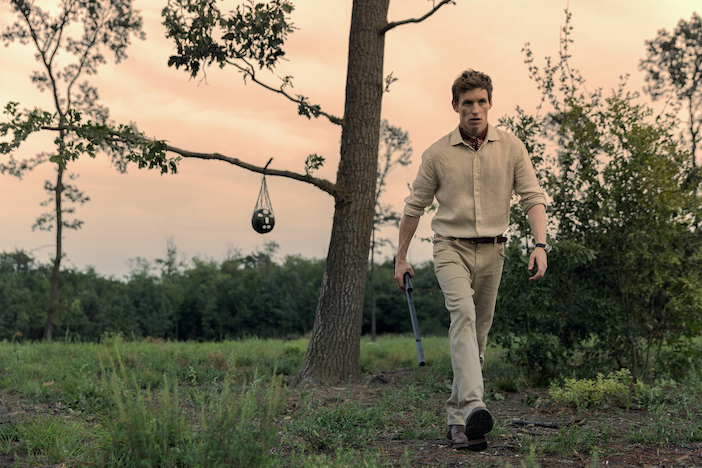
Well, halfway through transmission, these are my thoughts. I promise I will return to the subject if I manage to find anything else to say having both gritted and ungritted my teeth to the end. But the one thing it has done for me is to emphasise how many essential tropes Fred Zinnemann and his team landed squarely on fifty years ago.
Oh, yes, and that other actor able to convey all as well as nothing? Edward Fox, of course. And his day was in 1973.
The Day of the Jackal (the TV series) is airing now on Sky channels and NowTV. The original 1973 Fred Zinneman film is available to watch in the UK on ITVX.
Images courtesy of Sky

